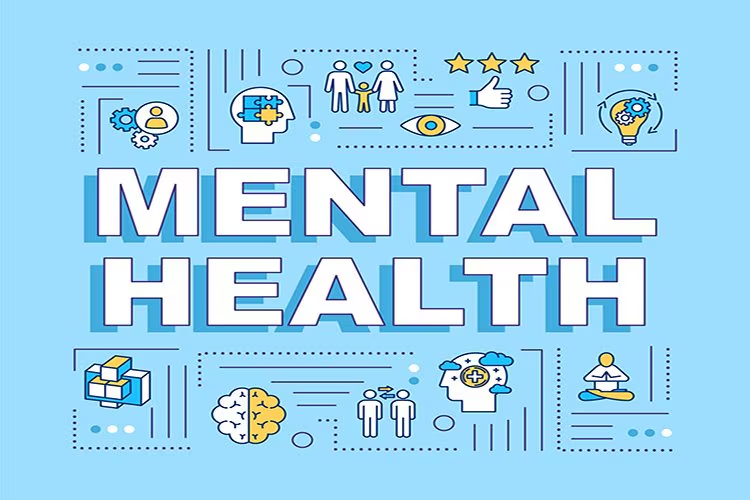Mental health training is an essential step in expanding your knowledge, improving your skills, or starting a career in this critical field. Whether you’re seeking to support others professionally or personally, the right course can empower you with the tools you need.
Choosing the best mental health training involves understanding your personal goals, evaluating course options, and matching them with your aspirations.If you’re ready to explore Mental Health Course options, we’ve outlined a step-by-step guide to help you make the right decision.
Understanding Your Mental Health Goals
Define Your Purpose
Before committing to any program, it’s crucial to identify why you want to pursue mental health training. Are you aiming to:
- Enhance your personal understanding of mental well-being?
- Transition into a career in mental health support or counseling?
- Add mental health knowledge to your existing professional skills, such as in education or human resources?
Clearly defining your goals helps filter through the myriad of course options available.
Consider Your Target Audience
If your goal is to work professionally, think about the population you wish to serve. Different courses cater to specific needs such as child psychology, workplace mental health, or community-based interventions. Selecting a specialized program ensures that you acquire relevant, actionable knowledge.
Researching Mental Health Training Programs
Look for Accredited Providers
Accreditation is key to ensuring that your certification is recognized by employers and professional bodies. Reputable programs in the UK often align with organizations such as:
- The British Psychological Society (BPS)
- The UK Council for Psychotherapy (UKCP)
- The National Counselling Society (NCS)
Verify that the training provider meets these standards to ensure your qualification holds value in professional settings.
Course Content and Structure
Evaluate the curriculum to ensure it aligns with your goals. Look for courses that cover:
- Core mental health principles
- Evidence-based therapeutic approaches (e.g., CBT, mindfulness)
- Practical applications through case studies or simulations
Part-time, online, or hybrid formats might be suitable if you have time constraints, but ensure they still offer interactive and engaging learning opportunities.
Selecting the Best Mental Health Training Level
Entry-Level Courses
These are ideal for those new to the field. They often cover introductory topics such as recognizing mental health challenges and basic intervention strategies. Examples include:
- Mental Health First Aid Training
- Level 2 Certificate in Awareness of Mental Health Problems
Intermediate Courses
For individuals with some foundational knowledge, intermediate courses deepen understanding and skills. Topics may include cognitive-behavioral techniques, motivational interviewing, or managing workplace mental health.
Advanced Certifications
If you aim to become a licensed professional, look for advanced programs like diplomas in psychotherapy, clinical counseling, or degrees in psychology. These typically involve more rigorous training and supervised practice.
Factors to Evaluate When Choosing a Course
Flexibility and Accessibility
- Is the program available online or in-person?
- Does the course schedule fit your lifestyle and commitments?
For those balancing work or family responsibilities, online learning platforms often provide a flexible alternative without compromising on quality.
Support and Resources
The best courses provide access to mentors, discussion forums, and additional learning materials. Personalized guidance can significantly enhance your learning experience.
Practical Training Opportunities
Hands-on experience is essential for those entering the mental health profession. Check if the program includes internships, supervised placements, or workshops.
Cost vs. Value
Mental health training costs can vary significantly. While some courses may seem expensive, consider their long-term value. Evaluate:
- Duration of the course
- Additional costs (materials, exams)
- Career advancement potential
Scholarships or employer sponsorship programs can also offset costs, so don’t hesitate to explore financial assistance options.
Making the Most of Your Mental Health Training
Set Clear Goals
Once you’ve enrolled, outline specific objectives you wish to achieve. This will keep you focused throughout the program.
Engage Fully
Participate in discussions, complete assignments, and seek feedback. Actively engaging with your coursework maximizes learning outcomes.
Apply Your Knowledge
Whether it’s in a professional setting or personal life, practice the skills and strategies you’ve learned. Practical application reinforces theoretical concepts and enhances your confidence.
Top Mental Health Training Providers in the UK
Here are some trusted names in mental health education:
- Mind: Offers various mental health courses for individuals and organizations.
- Mental Health Foundation: Provides workshops and e-learning programs on mental health topics.
- The Open University: Accredited online courses in psychology and mental health.
Conclusion
Choosing the right mental health course requires careful planning, research, and alignment with your goals. By focusing on accreditation, content quality, and practical experience, you can find a program that not only meets your needs but also sets you up for success in supporting others.
At Emcare, we understand the importance of empowering individuals with knowledge and skills to make a difference in the field of mental health. Take the first step toward achieving your goals by exploring the best training options available today.
For more information about technology visit busines point



